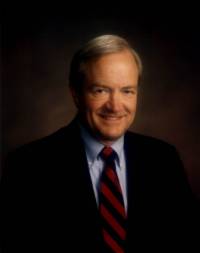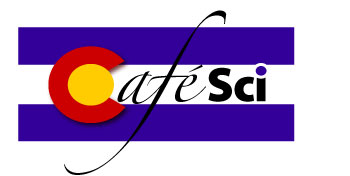| Curt Freed is Professor of Medicine and Pharmacology at the University of Colorado School of Medicine where he has been on the faculty since 1975. He serves as Head of the Division of Clinical Pharmacology and Toxicology in the Department of Medicine and is Director of the Neurotransplantation Program for Parkinson’s Disease. He was Director of the School’s Neuroscience Program from 1997 to 2002. Dr. Freed got his bachelor’s degree in Chemistry and Physics from Harvard College and his Doctor of Medicine degree from Harvard Medical School. He did residencies in Internal Medicine at Harbor General Hospital in Los Angeles and in Psychiatry at Massachusetts General Hospital in Boston. This training was followed by a three year research fellowship in Clinical Pharmacology at the University of California San Francisco where he established his interest in neurochemistry and began research on Parkinson’s disease. On joining the faculty at Colorado, Dr. Freed began studies on L-dopa in patients with Parkinson’s disease and in rats. These experiments were followed by novel studies using in vivo electrochemical electrodes implanted into intact rats that were trained to run in circles for a water reward. These experiments showed that dopamine was released from one side of brain more than the other and in direct relation to the intensity of the circling movement. These key results indicated that dopamine was used dynamically during movement. Dr. Freed recognized that drugs like L-dopa are fundamentally limited because dopamine produced by L-dopa is governed by the kinetics of the drug rather than brain dynamics. By the mid-1980’s, Dr. Freed was committed to the plan to use transplants of human fetal dopamine neurons to treat patients with Parkinson’s disease in an effort to provide more normal control of dopamine release by the brain. He and his colleagues started with transplants in rats and monkeys. By 1986, he had established an advisory committee at Colorado to review the progress of the pre-clinical studies and to provide advice on when to move ahead with patient transplants. In early 1988, the University’s Human Subjects Committee approved the transplant protocol. During that year, President Ronald Reagan forbade the use of NIH funds to support human tissue transplant research. Against this political background, Dr. Freed and his neurosurgical colleague Robert E. Breeze, MD, performed the first fetal dopamine cell transplant in an American patient with Parkinson’s disease on November 8, 1988, the same day George Bush was elected president, using funds from a philanthropist. This striking but coincidental timing was a dramatic demonstration of the ongoing struggle between fetal tissue research and politics. In 1992, the election of Bill Clinton made NIH support possible. Dr. Freed joined with Dr. Breeze in organizing a grant application to support a rigorous study of neurotransplantation. Noted Parkinson expert Dr. Stanley Fahn at Columbia University and leading PET scan expert Dr. David Eidelberg of North Shore University Hospital in New York participated in the development of the first double-blind study every performed in the field of neurosurgery. That study, completed in 1999 and published in the New England Journal of Medicine in March 2001, showed that transplants survived in 85% of patients regardless of age and without immunosuppression. Clinically, results showed that patients improved their condition in direct relation to how well they responded to L-dopa before the transplant. Because some older patients had relatively poor responses to L-dopa in the years before the transplant, older subjects did not appear to improve as a group. Transplants were able to replace completely the need for L-dopa in some patients. In some younger patients in whom L-dopa produced excess, abnormal movements, the transplant reproduced these dyskinesias. Dr. Freed has taken results of this study and is moving forward with efforts to develop dopamine neurons from human embryonic stem cells that will be suitable for transplant into Parkinson patients. In parallel with these studies, Dr. Freed has been researching the genetic causes of Parkinson’s disease together with his colleague, Wenbo Zhou, PhD. They have published a number of studies on the role of alpha-synuclein mutations on dopamine neuron survival. Most recently, they have described how the gene DJ1 can selectively upregulate synthesis of glutathione and heat shock protein 70, depending on the metabolic threat that is presented to dopamine neurons. They are now working to discover drugs that will turn on DJ1 to prevent the progression of Parkinson’s disease. | 
|
Stem cells have made big news in medical research and on the political scene. They’ve been given contrasting names in an ongoing political debate. “Adult” stem cells are already in our bodies. We rely on them every day to replace our skin, the lining of our intestine, our red and white blood cells, and to a very limited extent our brain. This category includes fetal cord blood cells and amniotic fluid cells. “Embryonic” stem cells are those derived from the earliest stage of embryos developed by in vitro fertilization. These embryos are discarded every year by the tens of thousands by fertility clinics. Embryonic stem cells have the unique ability to produce infinite numbers of cells in tissue culture and then be converted to any kind of cell in the body including heart, brain, and insulin-producing cells. Medical use of “adult” stem cells is common, from skin grafts to bone marrow transplants. Research on embryonic stem cells is promising, and treatments are likely to emerge in less than 5 years.
Recommended resourcesDr. Freed is the author of numerous scientific articles and in 2002 published “Healing the Brain,” a book for the general audience which describes the political as well as scientific aspects of his human neurotransplantation research. The book was co-written with the well-known science author Simon LeVay. Curt will bring some copies to the café in case you'd like to snap one up. Stem Cell Information. A typically authoritative page by the NIH, with some of the cautious approach you'd expect from a Federal agency addressing a politically controversial topic. The President's 2001 criteria for awarding funds for SC research are available here, as are links to informative essays and a good FAQ. A set of pointers to some excellent scientific and ethical articles from all over are gathered on this Canadian site, if you can get past its horrendous use of the colour yellow.
|
